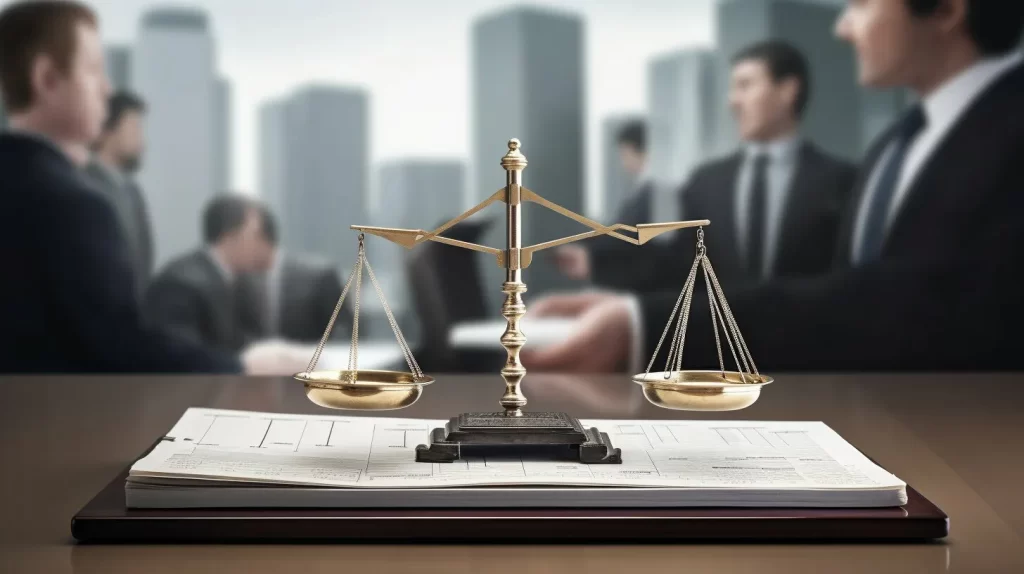Are you curious about how artificial intelligence (AI) will shape the legal landscape? Are you a lawyer looking to stay ahead of the curve? If so, this blog post is for you! Here, we’ll discuss the impact AI is having on the law and how it could affect your practice in the future.
What is Artificial Intelligence?
Artificial intelligence (AI) is a field of study that seeks to create computer systems that replicate human cognitive functions. While the term can be applied to computer systems that are intended to replicate human cognitive functions, it is important to note that AI is not just about technology. It is a field of study that seeks to create computer systems that can reason, learn, and make decisions on their own. As such, AI is embedded in many different disciplines, including law.
The law can be used to regulate the development, deployment, and use of AI. For example, Belgian law may be used to govern the privacy of individuals who are using AI systems. Additionally, AI law may be used to provide guidance on the use of AI in sectors like finance and healthcare. As AI technology continues to develop and become more widespread, it will be key for lawyers to stay up-to-date on the latest developments in the field of artificial intelligence law.
The Impact of AI on Belgian Law
Artificial intelligence (AI) has the potential to impact many aspects of Belgian law, including consumer protection, contracts, torts, and criminal law. In this article, we will discuss some of the ways in which AI may impact these areas of law.
One potential area of impact is consumer protection. AI systems can help identify and prevent fraudulent activities, such as online fraud or identity theft. By identifying and preventing these types of activities before they happen, consumers may be better protected.
Another area where AI may have a significant impact is contract law. With the increasing use of digital contracts, AI systems can help interpret and enforce these contracts. This could be especially useful in cases where parties are not familiar with legal terminology or do not have the time to read a lengthy contract.
Torts also may be impacted by AI systems. For example, robots could assist in medical malpractice lawsuits by providing information about the scene of the accident. This could help prosecutors prove that the defendant was at fault in the accident.
AI also has the potential to impact criminal law. For example, chatbots could be used to investigate crimes and help prosecutors identify suspects. In addition, automated reasoning systems could be used to identify patterns in criminal behavior and make predictions about future crimes.
While there are many potential implications of AI on Belgian law, it is still early days for this technology. As AI systems become more sophisticated and widespread, it will be interesting to see how it impacts Belgian law.
UNESCO’s Global Online Course on AI and the Rule of Law
Recently, UNESCO launched a Massive Open Online Course (MOOC) on AI and the Rule of Law. The goal of the course is to engage judicial actors in a global discussion on the application of artificial intelligence (AI) in the law.
The Massive Open Online Course (MOOC) on AI and the Rule of Law is an introductory course engaging judicial operators in a global and timely discussion. The course is delivered by 21 lecturers from 14 different countries, including geographical representation from all 5 inhabited continents. In addition, 6 modules are delivered by 21 lecturers, including geographical representation from all 5 inhabited continents.
The goal of the course is to provide judicial actors with an overview of AI and its potential impacts on the rule of law. The course provides a platform for judicial actors to share their knowledge and experiences with AI in a global setting. This course is an important step in helping to ensure that judicial actors are able to navigate the rapidly changing landscape of AI technology.
If you are interested in taking this course, you can find more information on the UNESCO website. By taking this course, you will be able to improve your understanding of AI and its impact on the rule of law.
AI and Legal Practice: What Law Can Do For AI
As artificial intelligence (AI) continues to develop at an exponential rate, the law is quickly adapting to keep up. Now more than ever, AI has the potential to make a significant impact on a variety of legal practices. For example, courts are already using AI to predict outcomes and make decisions.
Moreover, AI has the ability to automate legal processes and reduce the need for human interaction. As a result, AI has the potential to improve efficiency and accuracy in a number of legal practices.
Of course, there are also risks associated with the implementation of AI in the law. For example, AI could be used to discriminate against certain groups or individuals. In addition, AI could be used to perpetrate crimes or fraud. However, as the law continues to adapt to meet the needs of AI, it is likely that these risks will be mitigated or eliminated altogether.
Evidence and Decision-Making in Law
Artificial intelligence is quickly becoming an integral part of the law. As applications today include health care, education, employment-related decision-making, finance, law enforcement, and the legal profession, it is important to understand how AI is being used in these fields.
One area where AI is often used is evidence and decision-making. Lawyers are using AI systems to predict judicial decisions with a view to maximizing their success rates before particular courts. This is done by using the deep neural network method, which aims to find the best solution to a problem using multiple data sets. By doing this, lawyers can make better decisions based on the evidence available and avoid costly mistakes.
As AI continues to grow in importance in the field of law, it is important to continue the discussion on how it can be used most effectively.
AI and the Rule of Law
Artificial intelligence (AI) is growing in prominence and influence, with many countries proposing legal frameworks that are based on this technology. This chapter examines an interaction between technological shocks and the “rule of law.” It does so by analyzing the implications of a class of loosely defined legal technologies, known as “smart contracts,” on the relationship between law and technology.
The chapter begins by outlining the concept of “legal technology.” Legal technology is a type of technology that is used to construct or verify legal relationships. Smart contracts are a type of legal technology that is used to create and verify contractual relationships.
The chapter then argues that smart contracts have the potential to disrupt the relationship between law and technology. Smart contracts allow for the automated execution of agreements between parties without the need for a third-party mediator. This could lead to a reduction in the role of law in our society, as smart contracts would obviate the need for courts to adjudicate disputes.
However, smart contracts could also have positive effects on the relationship between law and technology. For example, smart contracts could reduce the cost of transactions by automating the process of contract formation. Additionally, smart contracts could improve transparency and accountability in the contractual process by recording all interactions between parties involved in a contract.
Artificial Intelligence and the Law (2nd edition)
Artificial Intelligence – The Practical Legal Issues (2nd Edition) by John Buyers is an excellent book that provides an in-depth overview of what is currently happening in the field of Law and Artificial Intelligence. The book provides a comprehensive look at the ways in which AI systems may impact Belgian law, as well as other legal systems around the world. By reading this book, readers will be able to gain a better understanding of the potential legal issues that are related to AI systems and how they may be used in the future.
Models of Legal Knowledge, Reasoning, and Decision Making
The process of developing an AI model causes one to learn about legal reasoning. Modeling involves elucidating key ingredients of precedent-based reasoning, across the breadth of AI (in reasoning, knowledge, learning, and language), as well as legal decision-making. Legal decision-making is a process of constructing and testing a theory, and the computer model achieved a correct prediction rate of 75%. Whereas the human expert group, composed of eminent lawyers and law professors, achieved a prediction rate of only 50%. These findings suggest that AI models can improve legal decision-making by providing a holistic perspective on legal concepts.
AI Systems and Their Impact on Society
As artificial intelligence (AI) continues to transform the world we live in, it is important to understand the impact this technology has on our judicial systems. AI systems are being used to analyze large amounts of legal data in order to help lawyers identify precedents. Judicial systems worldwide are using this technology to improve the accuracy and speed of their decisions.
AI and Professional Lives
Artificial intelligence (AI) is becoming increasingly more prevalent in our daily social and professional lives. Although AI systems and robots bring many benefits, there are also concerns about their impact on the labor market, including professional occupations. However, as artificial intelligence technology continues to develop, there are emerging areas that aspiring lawyers may want to master.
Recent advances in AI have given rise to concerns about its impact on the labor market, including professional occupations. However, as artificial intelligence technology continues to develop, there are also benefits that lawyers and legal professionals can reap. For example, AI and machine learning can free up lawyers and legal professionals from mundane tasks and help them focus on more important tasks. Additionally, AI systems are becoming better at identifying patterns and trends in data, which can help lawyers and legal professionals make more informed decisions.
Conclusion
Despite its numerous benefits, artificial intelligence (AI) cannot replace lawyers. AI can assist them in certain areas of work, but AI lacks the general understanding of the law that a lawyer possesses. For example, AI is unable to understand the nuances of contract law or the complexities of tort law. Therefore, while AI can play an important role in legal work, it will never be able to replace lawyers completely.



